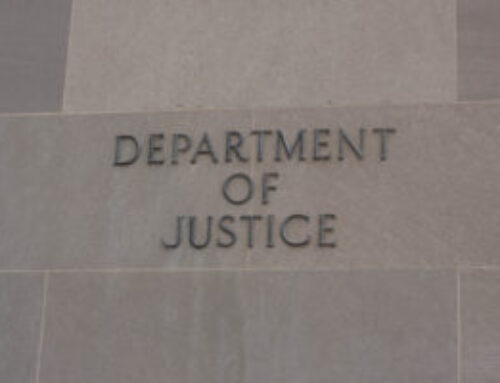Legal and Regulatory Developments
SPOTLIGHT: CFPB’s Chopra Blasts Potential Card Hikes
Payments Dive – March 14, 2022
The director of the Consumer Financial Protection Bureau said fee hikes by the card companies would add “insult to injury” at a time of inflation. Consumer Financial Protection Bureau Director Rohit Chopra minced no words Friday in a rare TV appearance, offering a critical view of the state of the U.S. payments sector.
Speaking on CNBC’s “Closing Bell” show, Chopra also took aim at the giant card network companies Visa and Mastercard over what he described as their plans to “hike fees at a time of inflation.” Chopra argued that those increases on merchants would be unfair at a time when inflation is at a multi-decade high. “That just seems like insult to injury to a lot of businesses out there,” he said. . . .
Biden’s Fed Nominees Advance to Full Senate
Banking Dive – March 17, 2022
Economist Philip Jefferson received unanimous support, while Lisa Cook saw a 12-12 party-line split. Sen. Pat Toomey, R-PA, signaled his opposition to Lael Brainard over climate-related issues.
The Senate Banking Committee on Wednesday advanced the nominations of several Biden administration picks to serve on the Federal Reserve Board of Governors. The 12 Democrats and 12 Republicans on the panel voted 23-1 to approve the renomination of Jerome Powell as the central bank’s chair. The lone “no” came from Sen. Elizabeth Warren, D-MA, who signaled her opposition in September, calling Powell “a dangerous man to head up the Fed.” . . .
US Passes “Game-Changing” Cyber Incident Reporting Legislation
Info Security – March 17, 2022
US critical infrastructure companies will be obliged to report cyber incidents within 72 hours to the Cybersecurity and Infrastructure Security Agency (CISA) under “game-changing” legislation signed into law by President Joe Biden this week.
Covered entities will also be obliged to report any ransomware payments to CISA within 24 hours under the Cyber Incident Reporting for Critical Infrastructure Act of 2022. This legislation forms part of the Consolidated Appropriations Act 2022, a $1.5tn omnibus spending package. . . .
How Biden’s Executive Order on Cryptocurrency May Impact the Fate of Digital Currency and Assets
Brookings – March 17, 2022
The Superbowl is America’s most-watched television event of the year and this year the sector with the most advertising was crypto. The crypto ecosystem of digital money (e.g., Bitcoin), nonfungible tokens (NFTs), digital wallets, and trading platforms have appeared throughout popular culture from a skit on the late-night comedy show Saturday Night Live to a segment of the Simpsons, currently America’s longest-running prime-time TV show.
The rise in popularity and growth in ownership of these digital assets has also caught the White House’s attention with the release of President Biden’s new executive order, “Ensuring Responsible Development of Digital Assets.” . . .
Has CFPB Gained an Upper Hand in Enforcement Cases?
American Banker – March 14, 2022 (subscription required)
The Consumer Financial Protection Bureau in late February issued a procedural rule with little fanfare or press that nonetheless may mark a significant strategic shift in how the agency pursues enforcement — and give it more latitude in tackling what appears to be an increasingly crowded enforcement agenda.
Our internal tracking shows that almost all of the CFPB’s pending enforcement actions were originally filed in federal district court, even though the Dodd-Frank Act permits it to pursue enforcement through administrative actions. . . .
Merchants Risk Losing Customers as New UK SCA Rules Kick Off
PYMNTS – March 14, 2022
On Monday, March 14, new strong customer authentication (SCA) rules will apply in the U.K. and merchants that didn’t implement these new rules risk customer purchases being declined.
SCA is a new set of rules that the Financial Conduct Authority adopted in 2019 to help protect consumers from fraud when they are shopping online. The deadline for retailers to fully support SCA has been delayed on a few occasions and the final deadline is due on March 14, 2022. The changes will mean that when customers buy something online, they will be asked to verify their identity, for example, through their banking app or a one-time passcode via text or phone call. . . .
Illinois Bill Seeks to Limit App Stores’ Control Over Payments
PYMNTS – March 11, 2022
The groundswell against the app stores and their commissions comes to the states. Apple and Google have been in regulators’ crosshairs at the federal level, and in the courts, over the operating structure of their app stores. More specifically, scrutiny had focused on how those tech titans facilitate transactions, and how much in commissions they make from sales tied to their apps.
The pressure has been global in scope. In one example, as reported this week, Korean telecommunication regulators banned Apple Inc., Alphabet’s Google and other app store operators from forcing software developers to use their payments systems. . . .
Mastercard Antitrust Class Action Balloons as Millions Added
Law360 – March 10, 2022 (subscription required)
Approximately 3 million people no longer living can join a £14 billion ($18.4 billion) collective action against Mastercard over interchange fees, as a tribunal ruled that anyone alive in Britain when the claim was filed in 2016 should be part of the class.
The Competition Appeal Tribunal said on Wednesday that people who were alive when proceedings started can be part of the class of 46 million people who sued the credit card giant. They claim to have paid higher prices in shops between 1992 and 2008 because of excessive swipe fees charged by Mastercard. The tribunal was asked to determine the “domicile date,” the date used in a collective proceeding to determine whether an individual lived in the U.K. and is therefore automatically included in the action. . . .
Merchants Bid to Block Looming Interchange Fee Hikes
Finextra – March 8, 2022
The Merchants Payments Coalition is calling on US politicians to block Visa and Mastercard interchange fee hikes that are set to take effect in April.
The retailer lobby group wants Congress to investigate Visa and Mastercard’s “anti-competitive dominance” over the US credit and debit card markets, citing President Biden’s call in his State of the Union address to fight inflation by increasing competition. “The two giant card networks and their partner mega-banks routinely use their market power to stifle competition and charge merchants the highest swipe fees in the industrialised world,” the MPC says. . . .
Industry Developments
SPOTLIGHT: As Visa and Mastercard Ready New Interchange Schedules, Merchants Brace for the Impact
Digital Transactions News – March 14, 2022
Having held off for the past two years, the country’s two biggest card networks are preparing revisions to their interchange schedules that at least one research firm says will cost U.S. merchants an estimated $475 million in additional transaction fees. Though Visa Inc. and Mastercard Inc. have historically revised their rate schedules each April and October, “this April is particularly significant,” says Callum Godwin, the Atlanta-based chief economist for CMSPI, a United Kingdom-based research firm.
The firm’s estimates indicate the changes in Visa’s rates will add up to a net $145 million in additional cost to acquirers. For Mastercard, the impact will net out to $330 million. . . .
RocketFuel Completes an Integration to Enable Crypto Payments Through ACI’s Platform
Digital Transactions – March 17, 2022
RocketFuel Blockchain, Inc., a provider of payment technology for Bitcoin and other cryptocurrencies, has finalized the integration of its payment solution with ACI Worldwide Inc. The integration to ACI’s Secure eCommerce platform will enable ACI’s more than 80,000 merchants to accept cryptocurrency payments with no processing fees. The partnership between the two companies was initially announced last November.
ACI merchants will now be able accept more than 120 cryptocurrencies via an interface that can be integrated into all leading e-commerce platforms and Web sites. In addition, ACI merchants will be able to incorporate cryptocurrency-based payment options into their mobile checkouts. . . .
Bank of Canada Partners MIT on CBDC Research
Finextra – March 17, 2022
The Bank of Canada has teamed up with the Massachusetts Institute of Technology on a twelve-month research project on central bank digital currencies. The project will see the central bank and the MIT Media Lab’s digital currency initiative team experiment with potential technology approaches to determine how a CBDC could work.
The Bank of Canada has spent several years working with the country’s commercial lenders to explore the creation of a DLT-based CBDC. Last year, it said that its work on a potential digital loonie has accelerated because of the Covid-19 pandemic and its impact on cash usage. . . .
Savings Won’t Be Enough to Prop Up Retail Spend in Paycheck-To-Paycheck Economy
PYMNTS – March 17, 2022
The urge to splurge is receding. High prices at the pump, and high prices no matter where you look, have translated into muted spending gains by U.S. consumers — and the savings they’ve accumulated may not be enough to prop things up.
As reported this week, retail spending was up only 30 basis points in February, per data from the U.S. Department of Commerce. Now, that’s still a gain, yes, but pales in comparison to the upwardly revised January data, which notched a 4.9% jump. And here’s the kicker. If one strips out gas and auto sales, then spending across all other, remaining categories, in the aggregate, show a 40 basis point drop (though here and there some retail categories showed gains, such as clothing and sporting goods). . . .
Mastercard Scales Its BNPL by Adding Merchants, i2c, H&R Block and Others
PYMNTS – March 16, 2022
Mastercard has announced a growing list of partners, including specialists in buy now, pay later (BNPL), that will take Mastercard Installments, the payments giant’s BNPL program, a press release said. The new partners include Amount, Bass Pro Shops and Cabela’s, Deserve, H&R Block, i2c, Lithic, Saks Fifth Avenue, Sutton Bank and Walgreens.
The release said that Mastercard Installments uses the usual four-installment payments method to allow for more flexibility in payments. The press release said that the Mastercard Installments program allows users to access BNPL offers, either approved beforehand through a lender’s mobile banking app or through instant approval during checkout. . . .
How Big of a Threat Is a U.S. CBDC to Privacy?
PaymentsJournal – March 14, 2022
And the postings on CBDCs just continue. This one is at Bloomberg and in the wealth subsection around crypto, which it seems lately that people can’t get enough of. There has been a slight uptick in interest given the recent EO by the Biden White House, which we also commented on the other day. As we pointed out, this EO merely shines further light upon something that has been underway at the Fed for more than a year, and indeed is already live (or will soon be) in a number of central banks.
“The world’s reserve currency may be about to go digital, potentially transforming the way Americans move and use their money . . . On Wednesday, the White House directed federal agencies from the Treasury to the Commerce Department to research a number of crypto-related topics, including the pros and cons of a digital dollar. . .”
New BNPL Study Raises Concern About ‘Debt Spiral’
Payments Dive – March 10, 2022
Some consumers are charging buy now-pay later installment payments to their credit cards, and that should serve as a “warning flag” to regulators, the study’s economist authors wrote. Nearly 20 percent of U.K. credit cards were used last year to make buy now-pay later payments, a “warning flag” for regulators concerned about consumers taking on more debt than they can afford, said new research from three British economists.
The working paper, published online last month though not yet in an academic journal, examined the transactions of one million credit cards held by U.K. consumers and discovered 19.5% of active U.K. credit cards were used for charges covering buy now-pay later (BNPL) transactions last year. . . .
– For questions about this newsletter or its content, contact Kristian Soltes @ ksoltes@constantinecannon.com.
Read Payments News Update – March 18, 2022 at constantinecannon.com






Leave A Comment